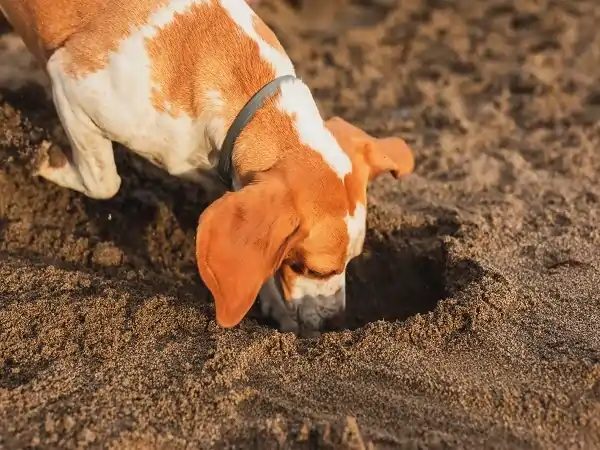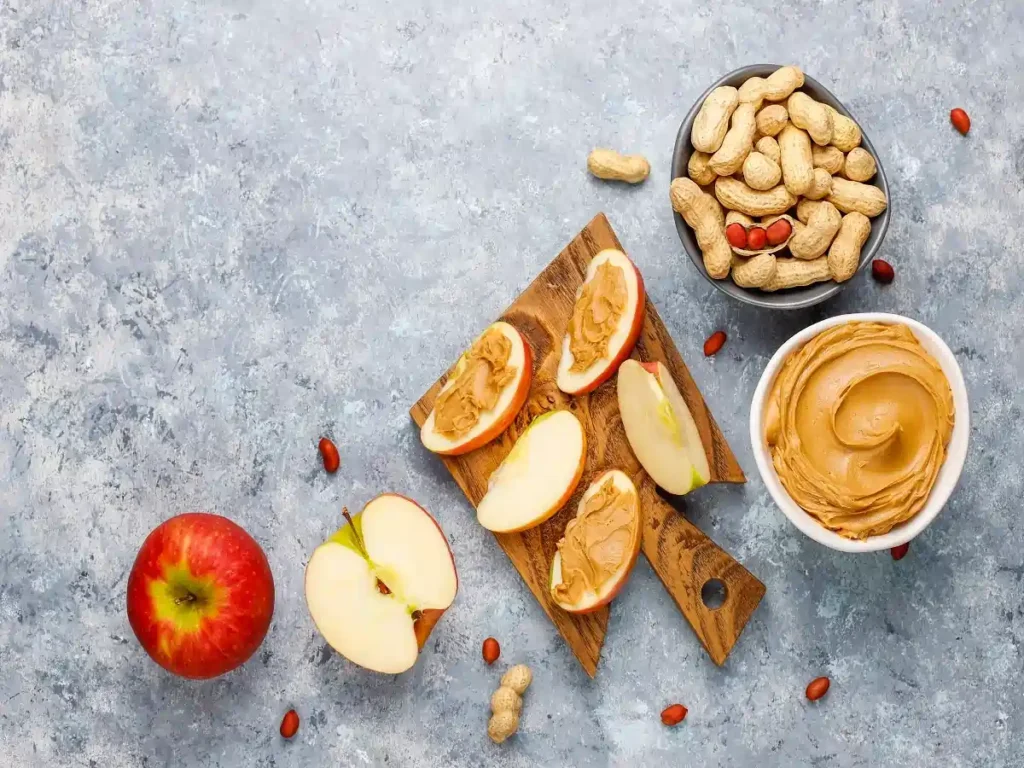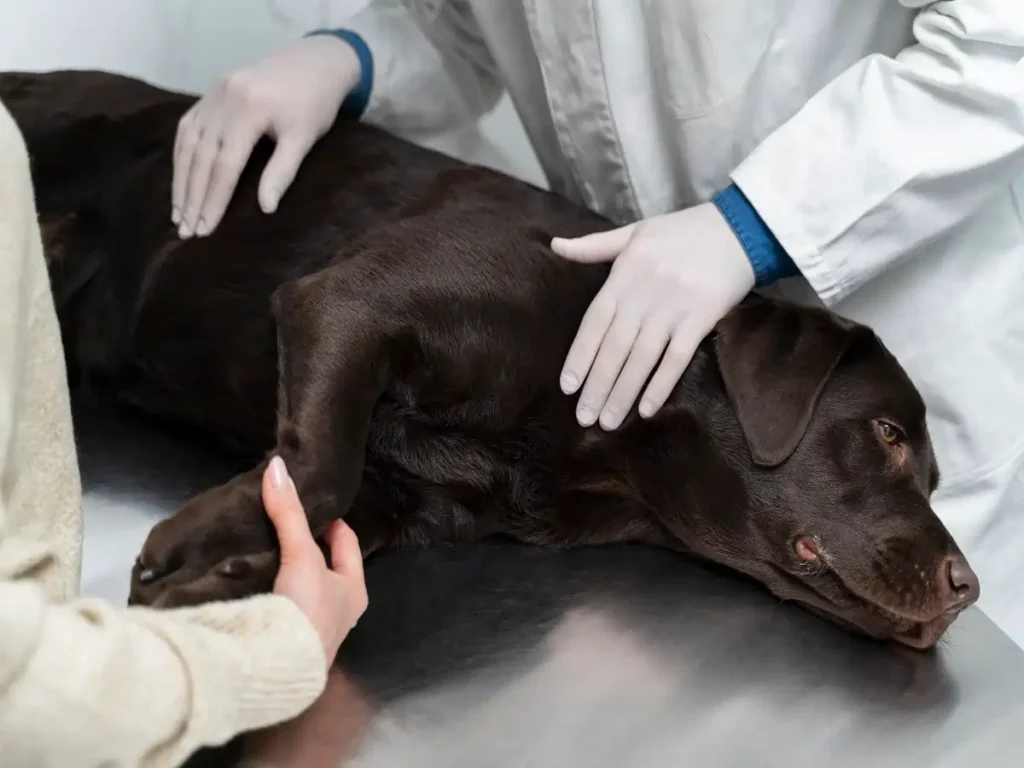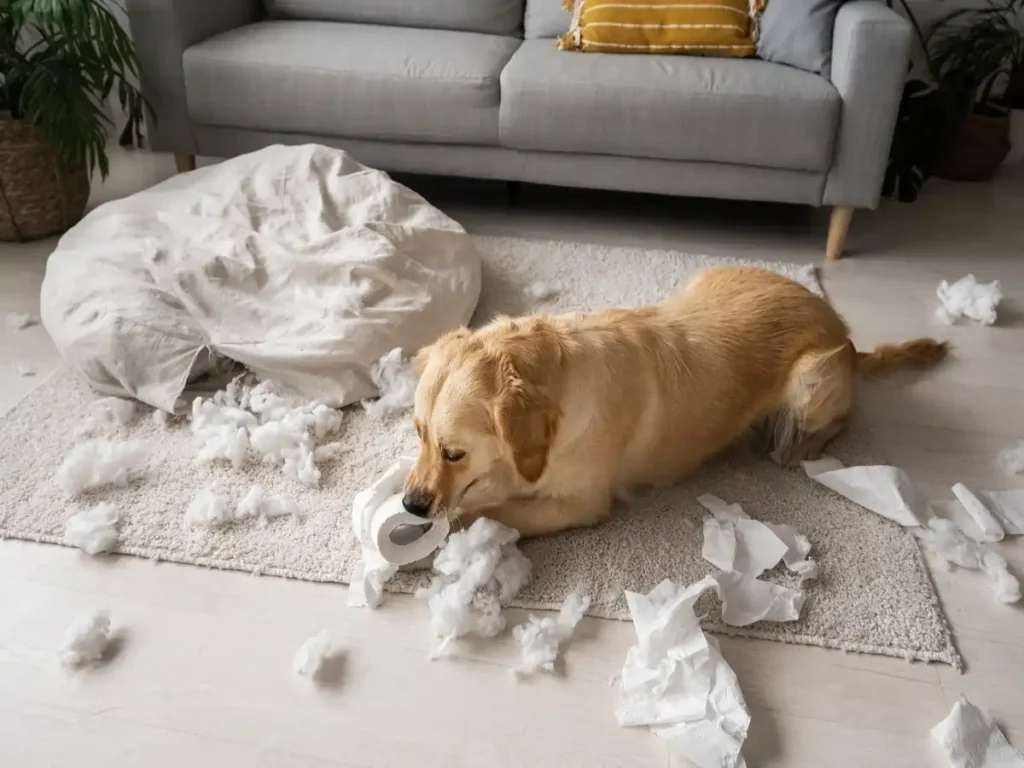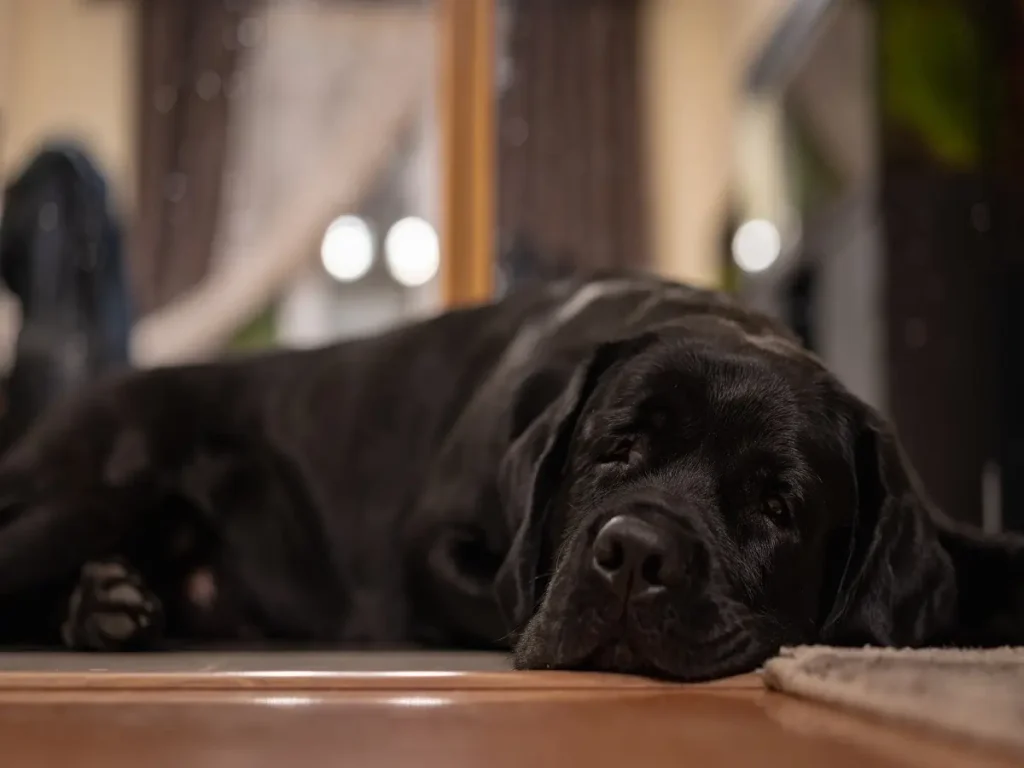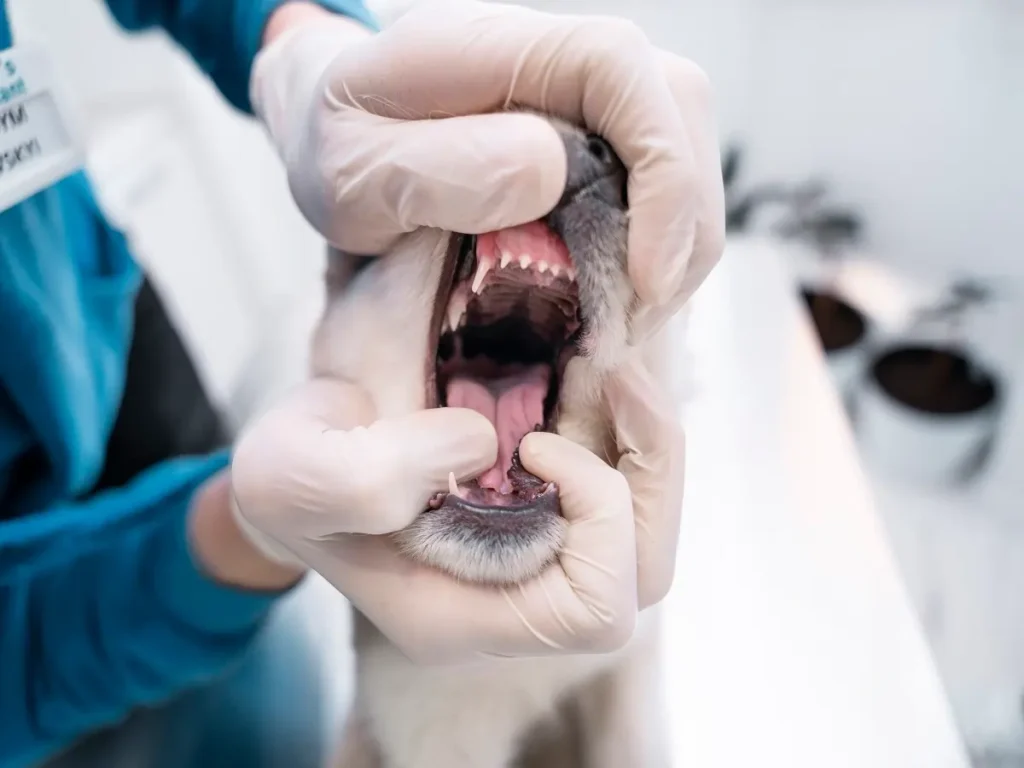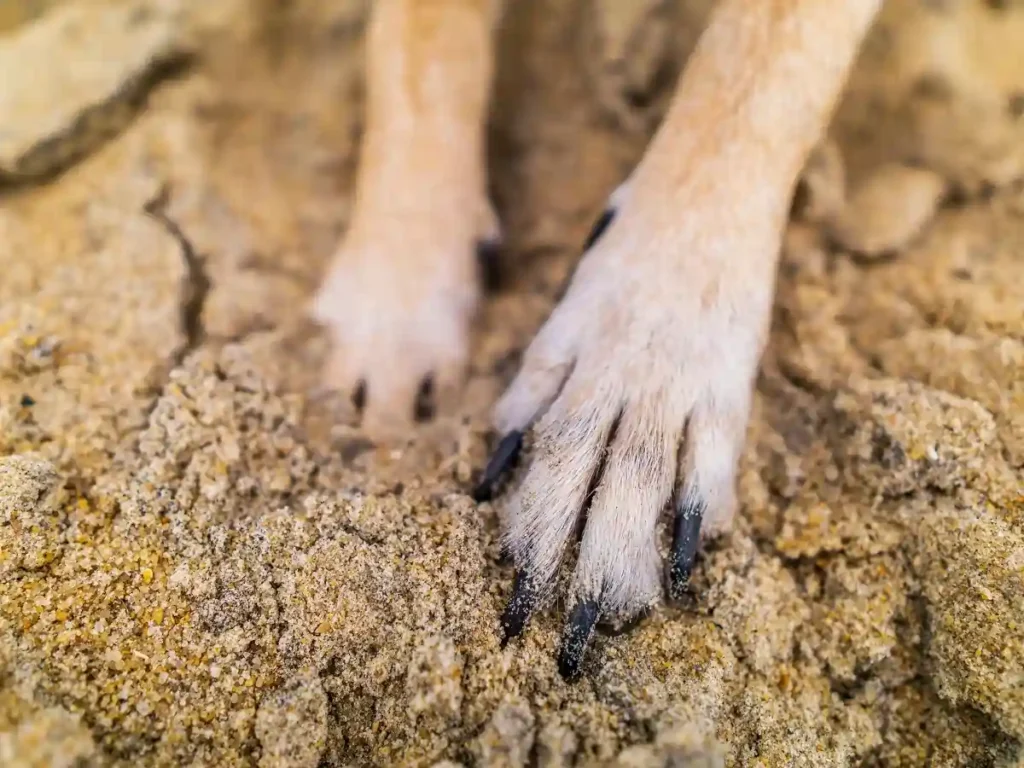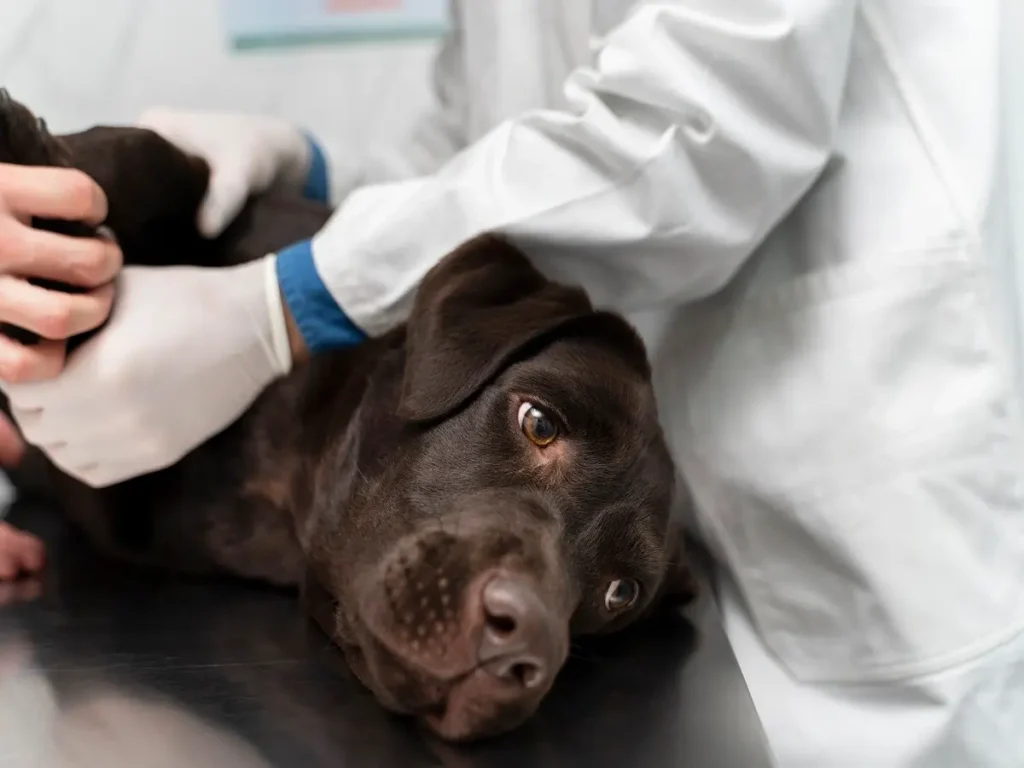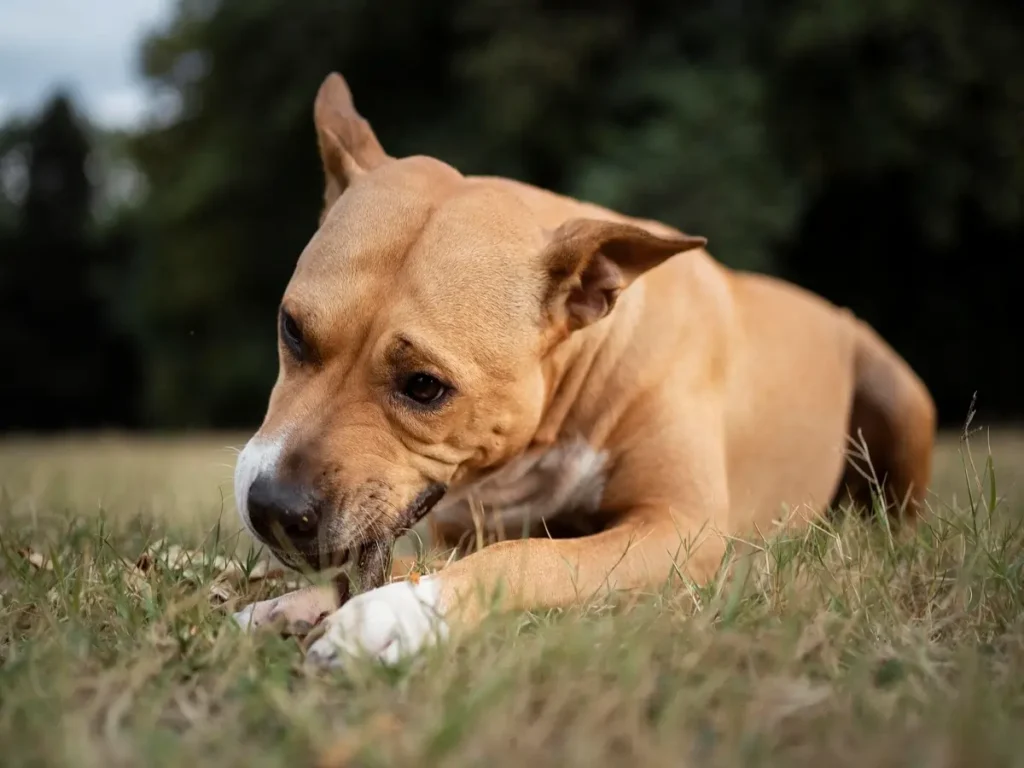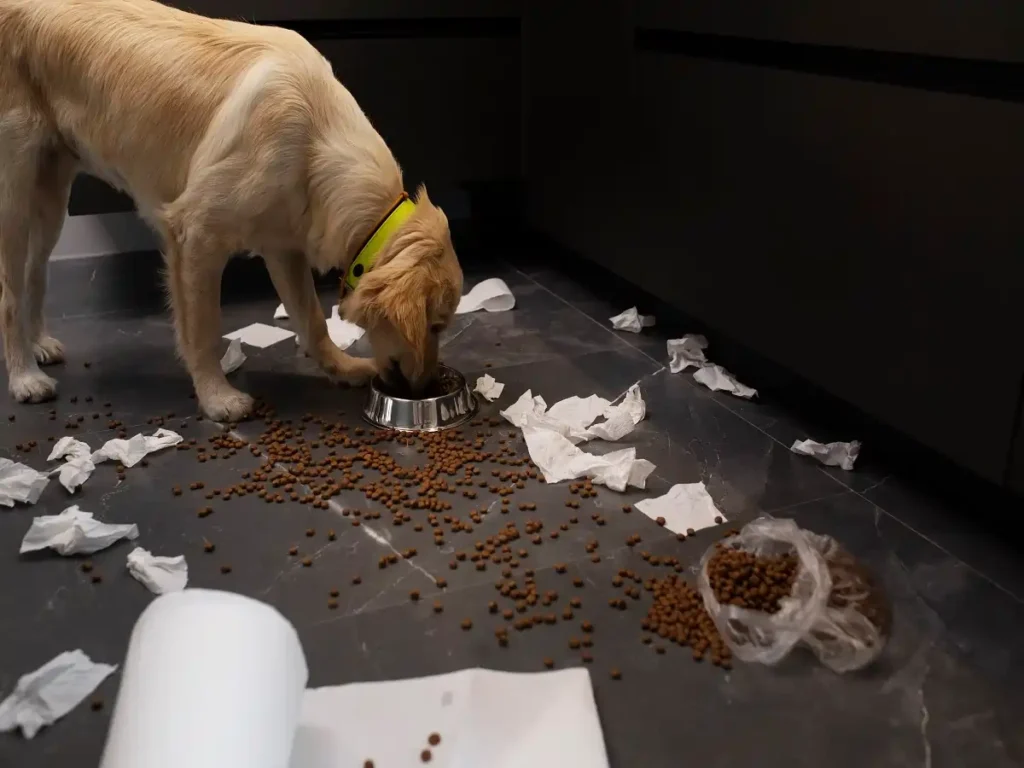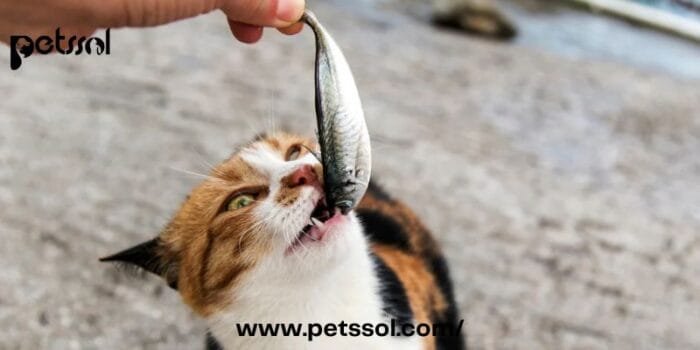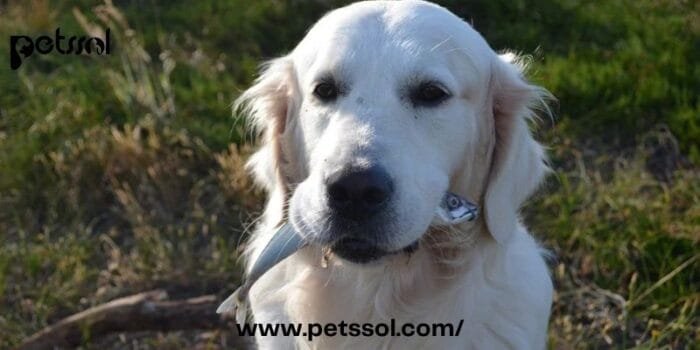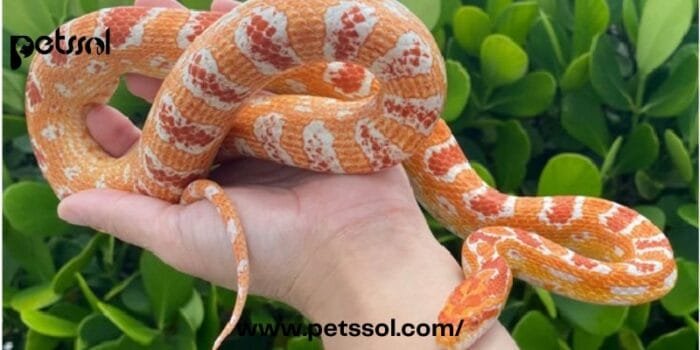Welcome to our blog all about why your older dog might be eating dirt. If you are confused or worried about this, then you are not alone. Lots of dog owners have seen their furry pals munching on soil and felt puzzled. But don’t worry. We are here to help you understand why this happens and what you can do about it.
As dogs get older, they can start acting weird or doing new things, just like people do. Eating dirt is one of those things that can leave owners scratching their heads. Even though it might seem weird or scary, there is usually a reason behind it that we can figure out and fix. Knowing why your older dog is eating dirt is the first step to helping them feel better.
In this blog, we will talk about the most common reasons why older dogs eat dirt. It could be because they are missing something in their diet or because they have a health problem. We will also talk about how you can tell if your dog is eating dirt and what you can do to stop it.
Our goal is to give you the information and tips you need to keep your older dog healthy and happy. So, let’s jump in and figure out why your dog might be munching on dirt.
Table of Contents
Toggle7 Common Reasons for Senior Dogs Eating Dirt
As pet owners, it can be distressing to see our senior dogs engaging in behaviours that seem puzzling or concerning, such as eating dirt. However, understanding the reasons behind this behaviour can help us address it effectively and ensure our furry friends’ well-being. Here are some common reasons why senior dogs might develop a penchant for dirt consumption:
1. Nutritional Deficiencies
Just like people, dogs need a balanced diet to stay healthy. But as dogs get older, they might need different things in their food. Sometimes, older dogs start eating dirt because they are missing important nutrients in their diet.
Older dogs might like eating dirt if they are not getting enough minerals like iron, calcium, or phosphorus from their food. Dogs are good at finding what they need, so if they smell these minerals in the soil, they might eat dirt to try to get them. Also, older dogs have specific food needs based on their age, how active they are, and if they have any health issues. If they are missing certain vitamins or minerals, they might eat dirt to make up for it.
Some dogs just like the taste or feel of dirt, especially if it has minerals or other stuff they like. This can make them want to eat more dirt, especially if they are missing important nutrients. But eating dirt is not always about food. Sometimes, dogs just like exploring and trying new things. If they find dirt interesting, they might eat it out of curiosity, even if they are not missing any nutrients.
To stop older dogs from eating dirt because they are missing nutrients. It is important to give them good food made for their age and needs. Ask your vet to make sure their food has all the right nutrients. You might need to give them special dog food or supplements. By fixing their diet and giving them what they need, you can help them stop eating dirt and keep them healthy as they get older.
2. Gastrointestinal Issues
Older dogs can eat dirt because of tummy problems. If they are feeling sick or have constipation. They might eat dirt to try to make themselves feel better. For example, if a dog is constipated, they might eat dirt to help them go to the bathroom. Dogs with upset stomachs or tummy infections might eat dirt to try to make themselves throw up or feel less sick. Sometimes, tummy issues can make dogs want to eat weird things like dirt. It is important for pet owners to watch out for signs of tummy problems in their older dogs, like throwing up, having diarrhoea, or not eating well. If your dog shows any of these signs, it is best to take them to the vet right away. Treating the tummy problems can help your older dog feel better and stop them from eating dirt.
3. Pica
Pica is a condition characterized by consuming non-food items, such as dirt, rocks, fabric, licking blankets or even feces, that have little to no nutritional value. This behaviour is not uncommon in dogs and can be caused by various factors, including medical conditions, behavioural issues, or environmental stressors.
Older dogs might eat dirt because of different reasons. Sometimes, it is because they have health problems like tummy issues or problems with their brain. These issues can make them want to eat weird things.
Other times, it is because they are feeling anxious or bored. Changes in their environment, like losing a friend or moving to a new place, can make them stressed, and they might eat dirt to feel better.
If your older dog eats non-food stuff, it is important to get help from a vet. It could be dangerous for them, and the vet can help figure out what is causing it and how to stop it. They might need medicine or changes in their environment to feel better and stop eating dirt.
4. Boredom or Anxiety
Boredom and anxiety are feelings that dogs can have, just like people. When dogs are bored, they might feel restless or frustrated because they are not getting enough mental or physical activity. Anxiety in dogs can make them feel nervous or scared, especially if there are changes in their environment or if they are separated from their owners.
Older dogs might eat dirt because they are feeling bored or anxious. It could be their way of trying to calm themselves down or distract themselves. For example, if a senior dog is left alone for a long time without anything to do, they might start digging and eating dirt to keep busy or deal with their feelings of loneliness or anxiety.
Dogs with separation anxiety might chew or dig because they are upset about being away from their owners. Eating dirt could become a habit for these dogs, helping them feel better temporarily or cope with feeling abandoned.
Changes in their routine or environment, like moving to a new house or losing a friend, can also make older dogs feel anxious and lead to behaviours like eating dirt.
To help older dogs who eat dirt because they are bored or anxious. It is important to keep them entertained and comfortable. Give them toys to play with, take them for walks, and spend time with them. Making sure they feel safe and loved can also help reduce their anxiety and prevent them from eating dirt. If the problem persists, talking to a vet or an expert in animal behaviour can provide helpful advice and support.
5. Dental Problems
Dental problems in dogs mean issues with their teeth or gums. They could have anything from plaque buildup to serious things like gum disease.
These problems might make a dog eat dirt. If their teeth hurt or if they have trouble chewing, they might chew on dirt to try to feel better. For example, if an older dog has gum disease, it might hurt too much for them to eat regular food. So, they might eat softer things like dirt instead.
Also, dental problems can change how a dog eats. If they have missing teeth or their jaws are misaligned, they might have trouble eating hard food. This could make them eat dirt instead.
Some dental problems cause bad breath or infections, making dirt taste better to dogs. They might also eat dirt to clean their mouths or soothe pain from sores.
It is important to notice signs of dental problems in older dogs, like bad breath or swollen gums. Take them to the vet if you see any of these signs. Regular check-ups and cleanings can help keep their mouths healthy and stop them from eating dirt.
6. Exploratory Behaviour
“Exploratory behaviour” means dogs exploring their surroundings by sniffing, tasting, and chewing things. They do this to learn about their environment.
Senior dogs eating dirt might do so because of their exploratory behaviour. They might find dirt interesting while exploring outside and decide to taste it out of curiosity. Also, dogs naturally dig and play in the dirt, especially if they are bored. Even as they get older, they might keep doing this to have fun or relieve boredom.
Sometimes, dogs eat dirt while playing with other dogs or to mark their territory. Changes in their environment, like moving to a new home, can also make them want to explore and eat dirt.
To stop senior dogs from eating dirt, owners can give them other things to play with outside, like toys or puzzles. Keeping them busy and happy can reduce their urge to eat dirt. Encouraging good behaviour and distracting them from dirt can also help.
7. Health Conditions
When we talk about “health conditions,” we mean any medical problems a dog might have that are not obvious. These issues can cause different symptoms or changes in behaviour. For example, if a senior dog is eating dirt, it could be because of these health problems.Top of Form
Neurological Disorders: Some brain conditions like cognitive dysfunction syndrome or seizures can affect a dog’s behaviour. This might make them eat dirt due to changes in their thinking or actions.
Endocrine Disorders: Problems with hormones like diabetes or thyroid issues can change a dog’s appetite or weight. Dogs with these issues might eat dirt because of changes in their body.
Pain or Discomfort: Dogs in pain might eat dirt to distract themselves or feel better. This could be due to arthritis or other long-term health issues.
Medication Side Effects: Some medicines given to older dogs can change their appetite or how they feel. This might lead them to eat dirt because of how the medicine affects them.
To help senior dogs, it is important to see a vet if they show signs of illness or odd behaviour like eating dirt. Treating their health problems can stop them from eating dirt as a symptom of being unwell.Top of Form
What to Do If Your Senior Dog is Eating Dirt
Discovering that your older dog is eating dirt might worry you, but there are things you can do to address this behaviour and ensure your dog’s health and well-being.
- Consult Your Veterinarian: First, take your dog to the vet to make sure there are not any health issues causing the dirt-eating.
- Identify the Underlying Cause: Work with your vet to figure out why your dog is eating dirt. It could be their diet, teeth problems, or other issues.
- Address Nutritional Needs: Make sure your dog gets good food that fits their age and health. Your vet can suggest changes if needed.
- Manage Environmental Factors: Stop your dog from getting to places where they can eat dirt. Use fences or keep an eye on them.
- Provide Mental Stimulation: Give your dog toys and puzzles to keep them entertained and stop them from getting bored.
- Offer Alternative Chewing Options: Give your dog safe things to chew on, like toys or bones, to keep them away from dirt.
- Monitor Your Dog’s Behaviour: Keep an eye on your dog’s habits. If anything seems off, talk to your vet.
- Be Patient and Consistent: It might take time to fix the dirt-eating habit. Stay consistent and watch for progress.
- Seek Professional Help if Needed: If the problem continues, ask a pet behaviourist or trainer for advice.
By following these steps, you can help your older dog stay healthy and happy without eating dirt.
Preventive Measures and Long-Term Care
Keeping your old dog healthy and happy is important. Here are some easy things you can do:
- Regular Veterinary Check-ups: Take your dog to the vet regularly to catch any problems early.
- Dental Care: Brush your dog’s teeth and give them dental treats to keep their mouth healthy.
- Nutritious Diet: Feed your dog good food that is right for their age and size.
- Weight Management: Make sure your dog stays at a healthy weight by giving them enough exercise.
- Regular Exercise: Keep your dog moving with gentle activities like walking or swimming.
- Environmental Safety: Make your home safe for your dog by removing anything harmful.
- Mental Stimulation: Give your dog toys and games to keep their brain busy and sharp.
- Senior-Specific Care: Pay attention to any changes in your dog’s behaviour or health as they get older.
- Quality Time and Affection: Spend quality time with your dog, showing them love and care every day.
Doing these things can help your old dog have a happy and healthy life.
Final Words
When looking after your older dog, we have talked about important things, like noticing if they eat dirt and what to do about it. By finding out why they do it and taking care of their health, food, and exercise, you can make sure your older dog stays happy and healthy. Remember to talk to your vet, give them good food, keep their mind active, and show them love and care. With your help, your older dog can have a great life with you.
Thank you for your commitment to providing the best possible care for your beloved senior dog.

